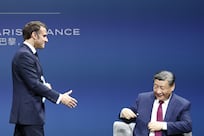American historian Daniel J Boorstin once argued that we’ve entered the post-truth era, an age where believability has become an acceptable substitute for truth. I’m inclined to agree. Increasingly, ours is a society characterised by lies, misrepresentation and fabricated statistics. From leaked emails suggesting that climate change data was misrepresented, to claims that Saddam Hussein had sought significant quantities of uranium from Africa and so Iraq must be invaded, deception is enjoying a boom.
Scientists lie, politicians lie, even some religious leaders aren’t above manipulating scripture.
Unsurprisingly, society has drifted in the direction of deception. Spin is very much in. Academic dishonesty and plagiarism are reportedly rampant. And how many divorces have deceit as their root cause? “It’s not the playing around, it’s all the lies,” runs the well-worn phrase, a sentiment echoed by best-selling authors and marriage therapists, Linda and Charlie Bloom. They write that the “denials that are used to cover up a transgression can do much more damage than the violation itself”.
The world of sport also appears to be increasingly plagued by allegations of dishonesty, typically in the form of match fixing, or doping scandals. The current poster boy for unsportsmanlike conduct is the seven-time Tour de France winner Lance Armstrong. He was stripped of his wins and banned for life after being charged with using illicit performance-enhancing drugs. The United States Anti-Doping Agency reported that the Armstrong case was “the most sophisticated, professionalised and successful doping programme that sport has ever seen”. Which was like saying that cheating had been taken to a whole new level.
On a more superficial level, emojis – ideograms or smileys – often grossly misrepresent how we feel. And many of us routinely digitally enhance our selfies before sharing them. In the offline world, the cosmetics industry (false eyelashes, false nails and false hair) is enjoying a boom. Throughout the recession, this industry remained in the red, but now further growth is projected for 2016.
The surgeon’s scalpel is also increasingly in demand. We now seek cosmetic surgery at record rates. Do prospective marriage partners always disclose the true origins of their perfect noses? One plastic surgery centre in Taiwan featured a photograph of an odd looking family (pretty parents, ugly children) accompanied by the tagline: “The only thing you have to worry about after plastic surgery is the explaining you’ll have to do to your children.”
This idea finds reflection in a recent news story that went viral. A Chinese man, Jian Feng, brought a lawsuit against his wife after she gave birth to an “ugly” daughter. The child looked so dissimilar to him and his wife that he initially suspected infidelity. Ultimately however, his wife confessed to having had cosmetic surgery, worth $40,000 (Dh147,000), before they met. Feng successfully sued for deceit and was awarded a settlement of $120,000.
This story was published around the world but there are claims that it was a hoax. How ironic if it was a lie about a lie, a meta-deception.
Deception, lying, misrepresentation and broken promises have always been part of the human condition. Furthermore, lying can be well-intentioned, diplomatic, entertaining or even necessary for survival. But it seems that today we engage in more of the self-serving and unnecessary types of deception. And worse, it all seems to be far more acceptable.
In an earlier time, oath-breakers were ostracised. Today, from our secular pulpits, we preach: fake it until you make it.
Are we in danger of becoming a society of superficial charmers, Machiavellian manipulators, and pathological liars? Unless we find ways to reconnect with truth and authenticity, I fear the worst.
Justin Thomas is an associate professor of psychology at Zayed University and author of Psychological Well-Being in the Gulf States
On Twitter: @DrJustinThomas





